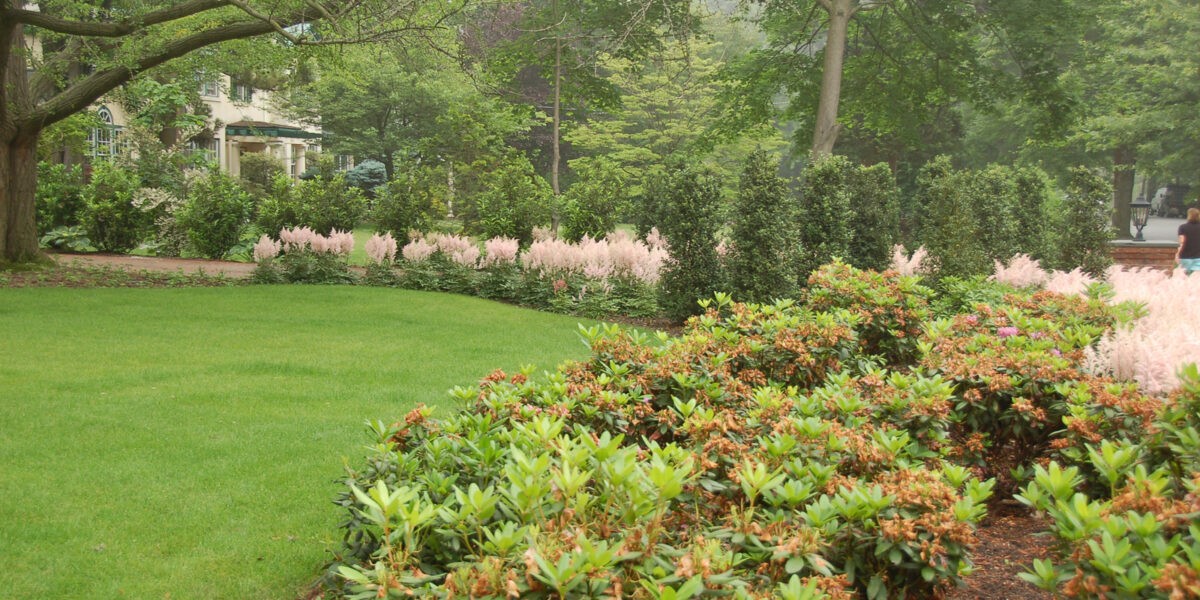- May 9, 2024
- By Stephen Costalos
- Healthy Lawn Maintenance, Organic Lawn Care
- (0) Comment
In an era where the importance of sustainable living cannot be overstressed, organic lawn care has emerged as an indispensable practice for eco-conscious homeowners and gardening enthusiasts. Adopting organic lawn care techniques not only contributes to the well-being of our environment but ensures that your garden remains a vibrant, healthy oasis without the use of harsh chemicals. In this comprehensive guide, we’ll explore the most effective tips for maintaining your grass organically, underlining the principles of sustainable landscaping and eco-friendly gardening.
Understanding the Basics of Organic Lawn Care
Organic lawn care transcends the mere avoidance of synthetic fertilizers and pesticides. It embodies a holistic approach towards gardening that harmonizes with nature’s rhythms, promoting biodiversity and soil health. This method respects the delicate balance of ecosystems, supporting a plethora of life from the ground up.
Soil Health: The Foundation of a Thriving Lawn
The adage “healthy soil, healthy plants” holds particularly true in organic lawn care. A vibrant, living soil teeming with microorganisms is the bedrock of any sustainable landscaping effort. Testing your soil is a critical first step, providing invaluable insights into its needs. Amendments such as compost or organic matter can improve soil structure, enhance moisture retention, and provide essential nutrients, creating an ideal environment for grass growth.
Choosing the Right Grass
Selecting a grass species suited to your climate and soil type is crucial for minimizing maintenance and reducing the need for external inputs. Native or adaptive species are more resilient to local pests, diseases, and weather patterns, enabling them to thrive organically.
Mowing Practices
Proper mowing practices are pivotal for sustaining a healthy lawn. Keeping blades sharp and mowing at the highest recommended height for your grass species encourages deeper root growth, which is essential for drought tolerance and nutrient uptake. Additionally, leaving grass clippings on the lawn can return nutrients to the soil, acting as a natural fertilizer.
Water Wisely
Irrigation is another critical aspect of organic lawn care. Over-watering not only wastes valuable resources but also promotes shallow root systems and susceptibility to pests and diseases. Watering deeply and infrequently encourages roots to grow deeper, searching for moisture and thereby enhancing the lawn’s resilience.
Natural Weed and Pest Control
Weeds and pests are common challenges in lawn care, but organic practices focus on prevention and natural remedies. Maintaining healthy soil and proper mowing practices can significantly reduce weed pressure. For pest management, encouraging natural predators, such as birds and beneficial insects, is a key strategy. For targeted interventions, organic herbicides and pesticides can be used sparingly and with consideration to their broader environmental impact.
The Role of Composting
Composting offers a multitude of benefits for organic lawn care. By recycling kitchen scraps and yard waste into compost, you not only reduce landfill contributions but also create a rich, organic amendment for your lawn and garden. Applied to the lawn, compost can improve soil structure, fertility, and water retention.
Encouraging Biodiversity
A crucial yet often overlooked aspect of organic lawn care is promoting biodiversity. Incorporating native plants, creating habitat features, and practicing integrated pest management (IPM) diversifies the ecosystem in your backyard. This not only enhances the beauty and health of your lawn and garden but also supports pollinators and beneficial wildlife.
Conclusion
Organic lawn care is a rewarding practice that aligns with the principles of sustainability and eco-friendly gardening. By prioritizing soil health, selecting appropriate grass varieties, employing smart watering practices, and encouraging biodiversity, homeowners can maintain lush, healthy lawns that contribute to the well-being of our planet. Implementing these organic lawn care tips will not only yield a beautiful outdoor space but also safeguard the environment for future generations.
Eco-conscious homeowners and gardening enthusiasts, by adopting these strategies and incorporating keywords such as “Organic Lawn Care,” “Sustainable Landscaping,” “lawn care,” and “Eco-Friendly Gardening” into your practice, you are not only enhancing your own green space but also contributing to a larger movement towards environmental stewardship.

